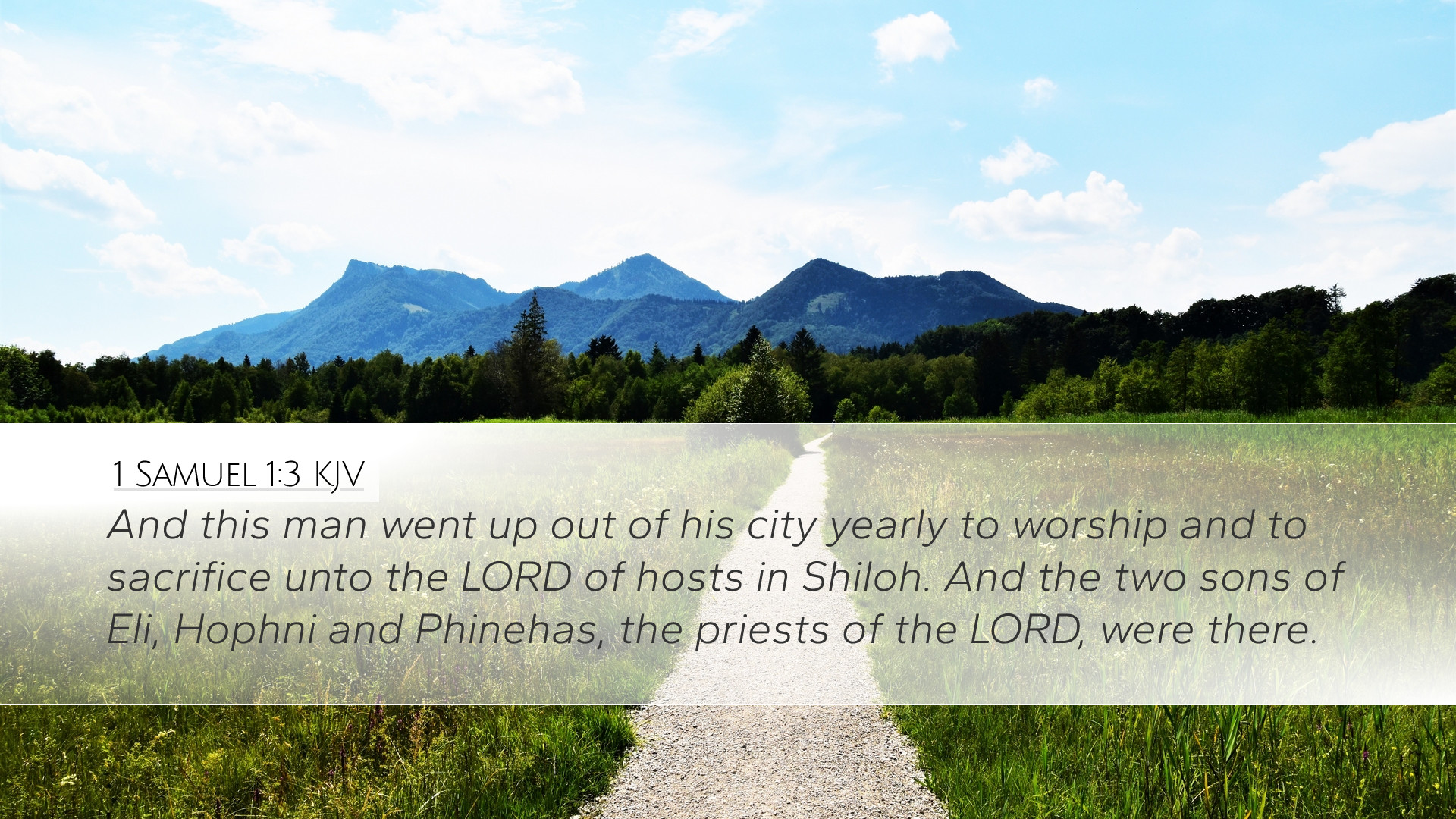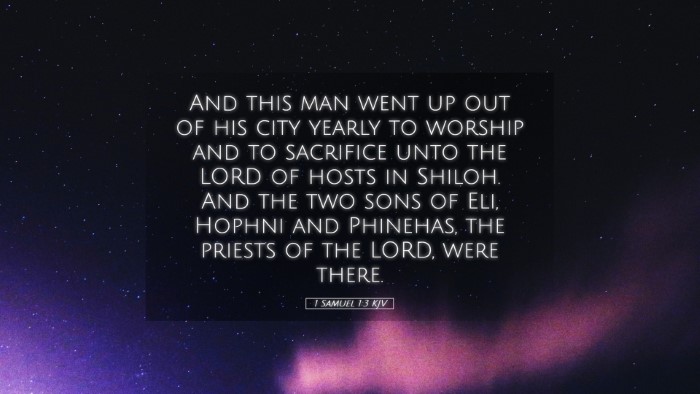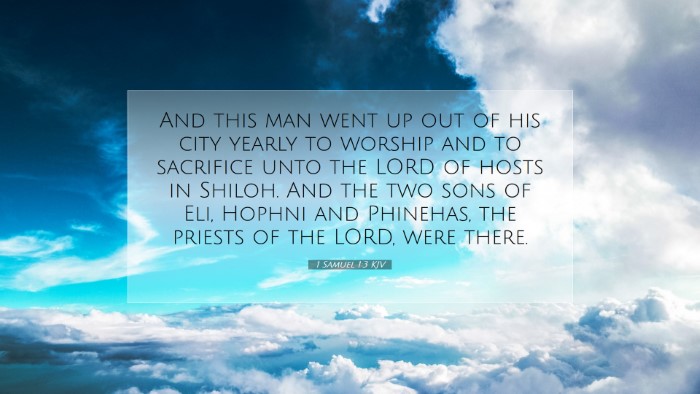Commentary on 1 Samuel 1:3
"And this man went up out of his city yearly to worship and to sacrifice unto the Lord of hosts in Shiloh. And the two sons of Eli, Hophni and Phinehas, the priests of the Lord, were there."
The verse introduces us to the spiritual practices of a man from the city of Ramathaim, signifying the importance of communal worship. This commentary draws insights from several esteemed public domain scholars.
General Analysis
The context of this verse pertains to Elkanah, a Levite by descent, who is depicted as a diligent worshiper of Yahweh. The narrative emphasizes the communal and annual pilgrimage of the Israelites to Shiloh where the Tabernacle was located.
Matthew Henry's Commentary
Matthew Henry highlights the faithfulness of Elkanah in his religious duties. He notes that Elkanah’s annual journey to Shiloh for worship demonstrates his commitment to God and his desire to establish a right relationship with Him.
-
Worshipfulness: Henry points out that worship is not merely a duty, but an act of love and reverence towards God. This annual pilgrimage illustrates collective worship in the community.
-
Sacrifice: The act of sacrifice in the context of worship signifies a means of atonement and communion with God. It reflects the essential nature of sacrifice in Old Testament worship traditions.
-
Priority of Worship: Henry asserts that the priority of worship should be evident in the lives of believers, encouraging consistent practices of faith amidst personal challenges, as exemplified by Elkanah despite familial circumstances.
Albert Barnes' Commentary
Albert Barnes elaborates on the significance of Shiloh as a central place of worship during this time. He reflects on the importance of religious institutions and leadership as embodied by Eli and his sons.
-
Shiloh as a central location: Barnes notes that Shiloh was chosen as the dwelling place of the Lord’s ark during a pivotal time, symbolizing the focal point of worship for the Israelites.
-
Role of Priests: The mention of Hophni and Phinehas serves to remind readers of the failure of priestly leadership during this period, contrasting Elkanah’s faithfulness with the corruption of Eli’s sons.
-
Religious Observance: Barnes emphasizes that Elkanah’s actions reflect the importance of maintaining religious observance, encouraging a deeper commitment to worship and sacrifice beyond casual participation.
Adam Clarke's Commentary
Adam Clarke provides an in-depth understanding of the cultural and historical backdrop of the passage, focusing on the significance of the sacrificial system and its implications for worship in ancient Israel.
-
Cultural Context: Clarke sheds light on the customs surrounding sacrificial offerings, noting that these practices were rooted in obedience to divine command and community identity.
-
Symbolism of Sacrifice: He elaborates on the types of sacrifices made and their intended outcomes, emphasizing that they were a means of seeking God’s favor and expressing gratitude.
-
Character of Elkanah: Clarke highlights Elkanah's character as a righteous and dedicated man, serving as a model for contemporary believers in their relationship with the divine.
Theological Implications
This passage offers profound theological insights into worship, sacrifice, and the nature of God’s relationship with His people. Through Elkanah’s devotion, it emphasizes the importance of corporate worship and the accountability of spiritual leaders.
-
Nature of Worship: The text illustrates that sincere worship arises from a heart dedicated to God, transcending mere religious obligation.
-
Accountability of Leaders: The presence of corrupt priests serves as a call for accountability within religious leadership, underlining the need for integrity and fidelity to God’s law.
-
God’s Faithfulness: The faithful worship of individuals often precedes God's significant acts; Elkanah’s devotion establishes a groundwork for the miraculous events that unfold later in the book surrounding Samuel’s birth.
Conclusion
In 1 Samuel 1:3, we witness the profound principles of worship, leadership, and faithfulness. The insights gathered from the public domain commentaries provide a well-rounded understanding that is applicable to pastors, students, and theologians alike. These reflections encourage believers to remain steadfast in worship and cultivate personal and communal relationships with God that honor His greatness.


